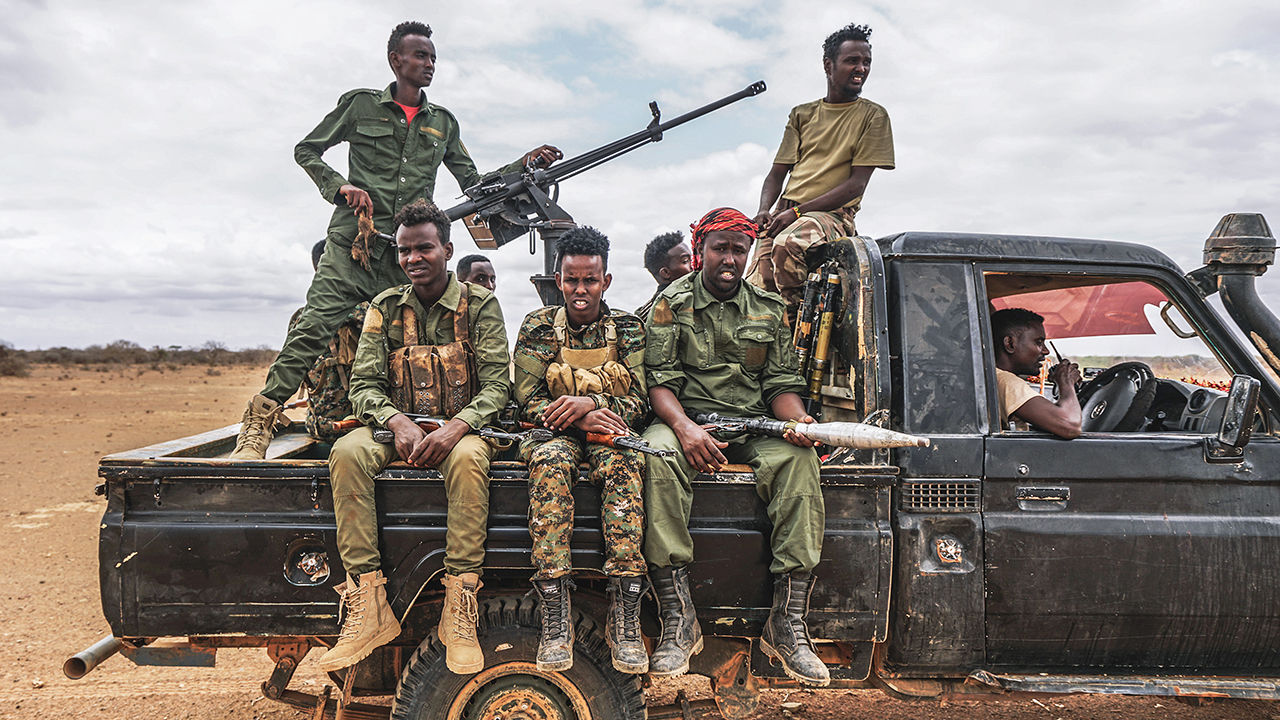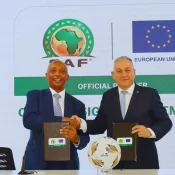
Why Ethiopian peacekeepers are not wanted in Somalia
Although it does not explicitly state that collaboration with Addis Ababa over al-Shabaab has stopped, Somalia claims it no longer trusts Ethiopia to participate in future peacekeeping missions.
Somalia’s Ministry of Foreign Affairs said Wednesday that it would choose which nations would send troops to the new African Union Stabilization and Support Mission (Aussom), which will replace the African Union Transition Mission in Somalia (Atmis) in January of next year.
Ethiopia is currently out of the question, according to Somalia, despite the fact that Somali President Hassan Sheikh Mohamud visited and spoke with leaders of nations that are sending soldiers to Atmis this week.
“Ethiopia has violated our sovereignty and undermined the trust necessary for peacekeeping through its recent unilateral actions, including an illegal agreement with the northern region of Somalia,” the statement stated.
Al-Shabaab activity has grown and not much has changed as a result of previous Ethiopian deployments. To make sure Aussom supports Somalia’s security and development objectives, this necessitates a more deliberate choice of troop partners.
Somalia did not state categorically on Wednesday if Ethiopia will send soldiers at all, but last month, Foreign Minister Ahmed Moalim Fiqi said Addis would not be included in the new mission due to territorial integrity violations.
Following Ethiopia’s signing of a memorandum of understanding with Somaliland, a breakaway territory of Somalia, the conflict began in January. Although officials said the MoU would give Ethiopia access to the sea for a naval station in Somaliland in exchange for Somaliland’s independence being recognized, the agreement has never been made public.
Ethiopia’s decision to grant Somaliland land so that it might establish a diplomatic post in Addis Ababa and the provision of weapons to Puntland state are two further occurrences that Mogadishu mentions.
Somalia stated, “The decision regarding troop contributions must be in line with Somalia’s national interests and the preservation of its sovereignty.”
With Somalia in the forefront of choosing partners who uphold our sovereignty, we are still dedicated to collaborating on Aussom with the African Union, United Nations, and European Union. When it comes to issues that impact its security and future, Somalia will not back down.
The current question, however, is whether collaboration with al-Shabaab, the shared adversary, is finished.
President Mohamud visited this week with the leaders of the other nations that provide Atmis with troops: Kenya, Djibouti, Uganda, and Burundi. While they all vowed to uphold Somalia’s territorial integrity, they demanded a seamless transfer from Atmis to Aussom, along with steady funding for the new mission.
According to a joint communiqué, it was imperative to observe “the constitutive principles of respect for territorial integrity, sovereignty, and non-interference” in Nairobi, Mohamud’s final stop on the shuttle diplomacy.
Additionally, they observed that Aussom “must be adequately resourced and noted the importance of exploring all funding options, including Resolution 2719.”
According to the disputed UN resolution, African-led peacekeeping operations on the continent are eligible to receive UN money if their circumstances warrant it.
The war against al-Shabaab has involved Somalia’s neighbors, but this week, Mogadishu accused Ethiopia of slowing it down with its agreement with Somaliland.
Ethiopia and Somalia have a growing difference in objectives, Somalia’s ambassador to Kenya, Jabril Abdulle, told The EastAfrican on Friday.
The security of other states in the region is directly linked to that of Somalia, which is a member of the East African Community. We all agree that our neighbors should help us,” Abdulle stated, acknowledging that the conflict with Ethiopia poses a risk to security cooperation.
The political climate in Somalia has completely transformed as a result of that MOU. Before this MoU arrived, Somalia’s situation was improving. He stated, “We have now shifted to the terms of this MOU and allowed al-Shabaab to continue its attacks without interference.”
As we have been working toward a single state, he continued, “this has caused a great deal of confusion on the African Transition Mission in Somalia operations and it risks facilitating the breaking of Somalia into pieces.”
Kenya attempted to arbitrate the agreement with Somaliland between Ethiopia and Somalia.
“We held a follow-up meeting in Ankara, Turkey, and a meeting in Nairobi with delegations from Ethiopia and Somalia. “This MoU has caused a serious problem for all of us,” he stated.
Turkiye has attempted to arbitrate between Somalia and Ethiopia twice but has been unsuccessful. Rather, it will now meet with each side separately before scheduling a new meeting, Ankara said.
Talks can only begin if Addis Ababa openly backs out of the Somaliland agreement, according to Mogadishu.
In recent public declarations, Ethiopia has been hesitant to announce that it plans to use diplomacy to settle the dispute over sea access.
All Categories
Recent Posts
Tags
+13162306000
zoneyetu@yahoo.com



